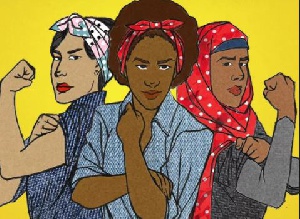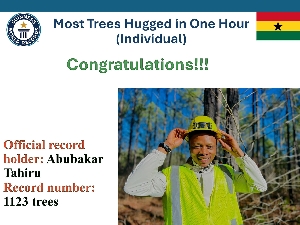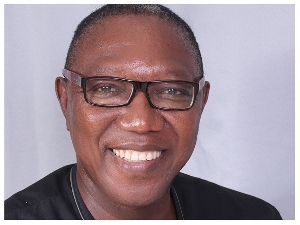 Feminism has courted several controversies especially in recent times
Feminism has courted several controversies especially in recent times
Before this piece, I obviously had heard about feminism and all the intriguing twists that came along with it.
I however did not pay attention to it. I remember making a statement about women empowerment and being asked by one of my friends on Facebook, “where I stood? Whether I belonged to the all aggressive bitter women movement or not?” That got me quite confused. As I mulled over what he said, I had a keen urge to find out more about Feminism.
It is an undeniable fact that the issue has courted several controversies especially in recent times. From the many diverse interpretation that people allude to feminism, I decided to write on feminism while seeking opinions from people with equal interest with a purpose to better appreciate, deepen understanding and relate well with the subject under discussion.
In this maiden edition of Feminism series, I sought people’s Understanding of Feminism. Below are just some responses that hit my mail.
Priscy writes
(Priscilla Akowuah-Acheampong)
Well… it is not really a bad thing as most men see it. Women empowerment basically, I would say. The abuse of it is what makes it bad. Back in the days women were not allowed to hold positions in government nor indulge in certain practices. Women were made to understand that their place was just the kitchen, you heard me right KITCHEN. The position of women led to a lot feeling less about themselves.
However mostly through education, things have changed. The fight for equality by women has come a long way and still lingers because even though women are gradually winning the fight, there is still more to be achieved. The world will be a better place to live in if women help are urged to do more and achieve more; not to abuse that right. Probably many women have abused the term and its understanding. It is not surprising, that some men like Martin Daubney suggests there is a rebranding of the word feminism. He supports the idea of gender equality but the word he thinks is off-putting and negative.
Douglas writes
(Douglas Agyemang)
My understanding of feminism is an attempt at giving women certain privileges in order to be a par with men. I believe that feminism advocate for support through education where women don’t need same grades as men to be admitted into a course of study.
Myma writes
(Jemima Ansong)
Before I commence my take on feminism, I would like to put on record that my take is purely my personal understanding of existing literature.
Feminism from history has evolved over time to suit the interest of women, especially educated ones, with many variations in its definition. Some women based on the interest they want to protect and project skew the interpretation. But the underlying fact has been the fight for equal rights of women generally. The increasing fight for equality has further led to other pressing needs such as educational equity, economic opportunity, reproductive rights, civil rights, and political inclusion.
The cultural context can largely be seen in women calling for acknowledgment within societies and the abolishment of certain harmful practices that have been deep rooted in tradition, thereby becoming acceptable.
Many women have equally stuck their necks out to condemn and seek justice for women who are abused largely by their partners.
Empowering women has become the lynchpin for women to know their place in society and fight for what is due them without fear or favour.
One observation is the imposition of a group’s beliefs on all women. Once they believe that a practice is an abomination to women’s right, they cling on to it ebulliently and loudly articulate that it must not be the accepted rule for every woman. This is where I beg to differ.
Like I earlier explained, there are so many variations within the definition of feminism. The best way to go is not imposing what one group believes is right and condemning what another group of feminist believe. There can never be one universal outright definition although the common denominator remains the fight for equal rights for women, so acknowledgement must be accorded to every group within the larger context.
There is also another group of women who believe men have outlasted their dominance in all spheres of life, so it is time to take their place, rise to the top and belittle their ego. In as much as I respect their differences, I do not share their stance. In empowering myself as a woman, my intention is not to be exactly what a man is, posses and exhibit a man’s trait, take his place, show off my authority and power should I climb high the academic or corporate ladder, deliberately bring a man beneath my feet. No! Far from that!
I am empowering myself to give my best, to work hard at what I want to be, not to look down on myself irrespective of where I find myself, to find my voice, to be heard, to stand for what I believe in without fear or favour, to demand what is rightfully and lawfully mine. I believe in order to demand what is due you, you must know what is yours- through Empowerment and Education.
The fight for equal rights for women must be threaded with caution as it is a very sensitive issue. We don’t need to fight with physical force wielding weapons like we are on war fronts with the men. We must fight the right way through communication. After all, the fight is to bring about Development in the life of all women.
It is only when persuasion fails; when systems refuse to heed, that groups; movements come together to rebel until their concerns are addressed.
Once a problem with gender equality is identified in any space then it must be tackled by both men and women, not just women. I am glad to know many men in Ghana who are feminists too.
On this note I couldn’t agree less with Chimamanda Ngozi Adichie, that “we all must be feminists” to achieve the development of women generally.
Maame writes
(Maame Efua Ewusie)
Technically, feminism has to do with advocating for equal opportunities and equal rights, that is in terms of human, civil and legal rights, for both genders.
This I think has been widely achieved, even in our part of the world, since both men and women in my opinion have equal rights and are given the same opportunities in most cases albeit not always; in some instances men are favoured over women and vice versa.
I think the main problem with feminism in recent years is that it has become more about fighting for equality of outcome, blame game and victimization - blaming the patriarchy (men) for the shortcomings and failures of women - instead of advocating for equal opportunities.
Although I don’t agree with such kind of feminism, I wholly acknowledge that in the past and unfortunately in some current instances, our societal beliefs and structures see women as ( for want of a better word) inferior to men. Certain gender roles and expectations may also be contributing factors. But I believe an important but usually forgotten factor is that men and women are inherently different and certain traits make men on average for instance, more dominant/aggressive or take certain life choices as opposed to women.
Further, I don’t think the approach to changing the structures should be blaming or subjugating men. I think the conversations are needed but it should be more about working together with them in a more positive constructive manner.
I also believe feminism should be more about women empowerment, especially now since there are some if not many women/men who still believe women have to be dependent on a man to survive. People need to be reminded of the equal opportunities available and how being successful in terms of career or wealth is more about our traits and life choices and not totally based on the system despite its limitations.
Finally, instead of making women feel they are victims of a patriarchal system, the conversations should be geared toward how we can work together for the benefit of all and for posterity.












